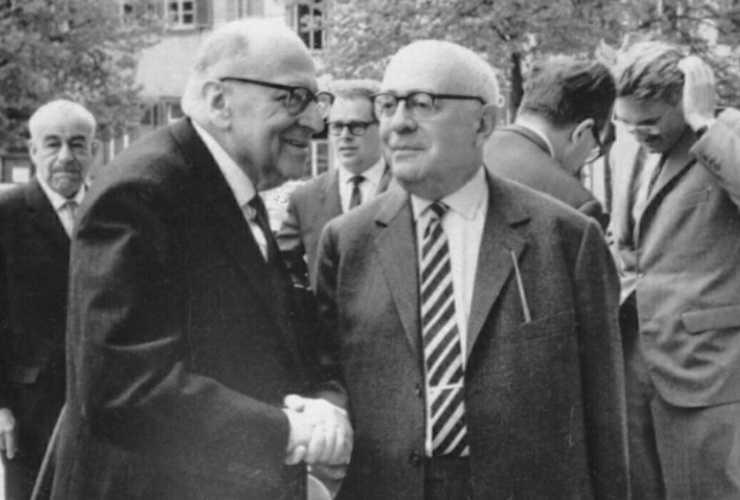
In the Boston Review, philosopher Seyla Benhabib reflects on the intellectual mission of the Frankfurt School and its enduring relevance today. As Benhabib notes, Frankfurt School thinkers like Max Horkheimer and Theodor Adorno sought to update the concept of “critique” developed by Kant to include the function of epistemological and social emancipation. Here’s an excerpt:
Today the post–World War II international order (or disorder) is in shambles. A new war of superpowers is announcing itself, disguised for the time being as trade wars. The left has always been skeptical—in many cases justifiably—of multi-national governance institutions such as the United Nations, the International Criminal Court, and the World Trade Organization. But it now finds itself on the sidelines of history, watching the clash between the U.S. and China on the one hand and the growing expansion of authoritarian populism from Hungary to Turkey, from the Philippines to Poland, from Russia to Singapore, on the other. And unfortunately, so far we have had very little to say about the shape of an alternative world in which freedom and justice can be housed in institutions that transcend murderous superpower confrontations. The left critique of neoliberal globalization will have to be extended to envisaging new global institutions for controlling capitalism on a global scale, for encouraging sustainable and ecological planetary growth among peoples, and for supporting the international human rights system.
As Arendt observed, liberation is not the same as freedom. Freedom requires creating institutions and practices; it involves shaping new and durable worlds. And this is a task that every generation must bear anew. I do not share in today’s widespread “left-wing melancholia,” to use the title of Walter Benjamin’s essay, now made famous again by Enzo Traverso’s masterful and poignant account of the passing away of traditional socialist and communist projects in our world. The task of critique is interminable; it needs to confront ever-new forms of injustice, oppression, exploitation, and marginalization. Emancipation means not only liberation from such injustices, exploitation, exclusion, and marginalization but also having the courage to build a new world in which freedom can be housed.
Image: Max Horkheimer (center left), Theodor Adorno (center right), and Jürgen Habermas (far right). Via Boston Review.